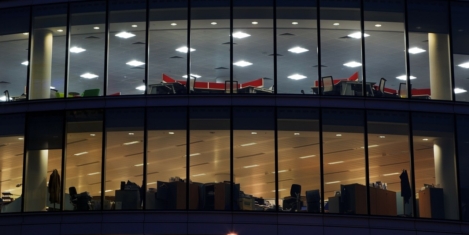To provide the best experiences, we use technologies like cookies to store and/or access device information. Consenting to these technologies will allow us to process data such as browsing behaviour or unique IDs on this site. Not consenting or withdrawing consent, may adversely affect certain features and functions.
The technical storage or access is strictly necessary for the legitimate purpose of enabling the use of a specific service explicitly requested by the subscriber or user, or for the sole purpose of carrying out the transmission of a communication over an electronic communications network.
The technical storage or access is necessary for the legitimate purpose of storing preferences that are not requested by the subscriber or user.
The technical storage or access that is used exclusively for statistical purposes.
The technical storage or access that is used exclusively for anonymous statistical purposes. Without a subpoena, voluntary compliance on the part of your Internet Service Provider, or additional records from a third party, information stored or retrieved for this purpose alone cannot usually be used to identify you.
The technical storage or access is required to create user profiles to send advertising, or to track the user on a website or across several websites for similar marketing purposes.
 With the British workforce being asked to return to working from home amid fears of a second spike in COVID-19 cases, new research from employee experience professionals Qualtrics, claims that a quarter (24 percent) of UK workers do not feel valued by their organisation.
With the British workforce being asked to return to working from home amid fears of a second spike in COVID-19 cases, new research from employee experience professionals Qualtrics, claims that a quarter (24 percent) of UK workers do not feel valued by their organisation.













 New research by management consultancy
New research by management consultancy 




 A new report, released by workplace design consultancy,
A new report, released by workplace design consultancy, 
 The
The 
 New research commissioned by
New research commissioned by 
 A new study looking at skills in online chess tournaments from
A new study looking at skills in online chess tournaments from 








October 22, 2020
Everybody needs to be prepared for a new digital workplace
by Simon Hayward • Comment, Flexible working, Technology